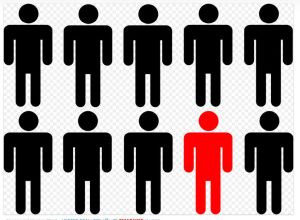
Hi Friend,
Counted among those “unforgettable people” I’ve been privileged to know were Ewald and Elsie Unger whom I met in 1974. In the early ‘30’s they were young, just married and beginning a family in Germany when the madman Adolph Hitler came to power. Their homeland was swept up in a tidal wave of mindless passion that embraced Hitler’s rise to power covering the entire nation and overflowing national boundaries.
Unable to bear the thought of raising children under a Nazi regime they took the best option available. In 1935 they emigrated to the U.S. where Ewald continued his trade as a tailor working at a military school in Wisconsin. All the men in the shop were German immigrants who spoke in their native tongue while working.
Elsie raised the kids at home and learned English to communicate with her children who spoke English at school and with their friends. She learned to converse with the neighbors, the grocer, the banker and others in the community. Ewald developed a sort of hybrid language at home with Elsie who used a mixture of German and English.
I met Ewald and Elsie in Florida where they were retired. They purchased a couple of acres of land on the outskirts of town and lived in a small mobile home, no larger than a travel trailer. Ewald’s love was horticulture, and tailoring. Their two acres was a paradise of fresh vegetables surrounded by lush tropical plants.
In those days my suits, which were purchased off the rack, rarely fit properly. He saw me at church and shook his head. Soon I was standing in the living room of their tiny mobile home being measured for corrections. From then on, I wore suits customized by Ewald that fit perfectly.
Ewald never learned to speak English and after 50 years of living in the U.S. his German was lost. He communicated with only one other person, his wife. Not even his grown children were able to converse with him. For all the time I knew them Elsie translated for him and spoke for him. They grew to almost know what the other was thinking. Elsie died first, and from then on, he was never able to talk with another human being.
Ewald and Elsie were two of the most self-sufficient people I’ve ever known. I admired almost everything I knew about them. They escaped the clutches of a madman but fell victim to isolation from society. They rejected their homeland when it compromised values to gain security. But they failed to adapt to the norms of a culture whose values they embraced. They could not be conquered by the Nazi machine but Ewald could not speak the language of the children he helped raise.
Their conflict with the world around them may be emblematic of Christians.
On the night before his crucifixion, Jesus prayed to his Father, “I am no more in the world but these are in the world.” (John 17:11) Jesus never expected his followers to remove themselves from society. But he knew there would be a constant conflict between Christians and the world. He went on to pray, “the world hated them because they are not of the world.”
What is the difference between being “in the world” and “of the world?” And how does this affect our conformity to those around us?
In America we drive on the right side of the road, people in England drive on the left. When the traffic light is red, we stop and when it is green, we go. There is probably another country, somewhere, that uses other colors for the same purposes. These are conventions of society to which we must all agree to conform for the safety of all.
When Jesus walked this earth, he wore the clothes that were typical of others at that time. He used the same language and spoke in parables common enough to have meaning to the audience. He honored the conventions of the time. He was “in the world.”
What is it that makes a man not “of the world?”
At the core of human thought is the ability to make moral choices. Trees can’t leave a country because the dictator is evil. Dogs and cats did not react with outrage when the Nazi machine committed atrocities against the Jews.
The unique quality of being human is the ability to understand right and wrong and exercise the will to do right. To give up moral choice, is to join the world and lose life.
Three thousand years ago Moses was given a message from God to give to the Israelites. “See I have set before you this day life and good, death and evil…. therefore choose life, that both thou and thy seed may live.” (Deut. 30:15,19)
There is a world of difference between convention and morality. Any man may accept the conventions of society, but only free men choose to be moral.
Until next time,
Jim O’Brien
